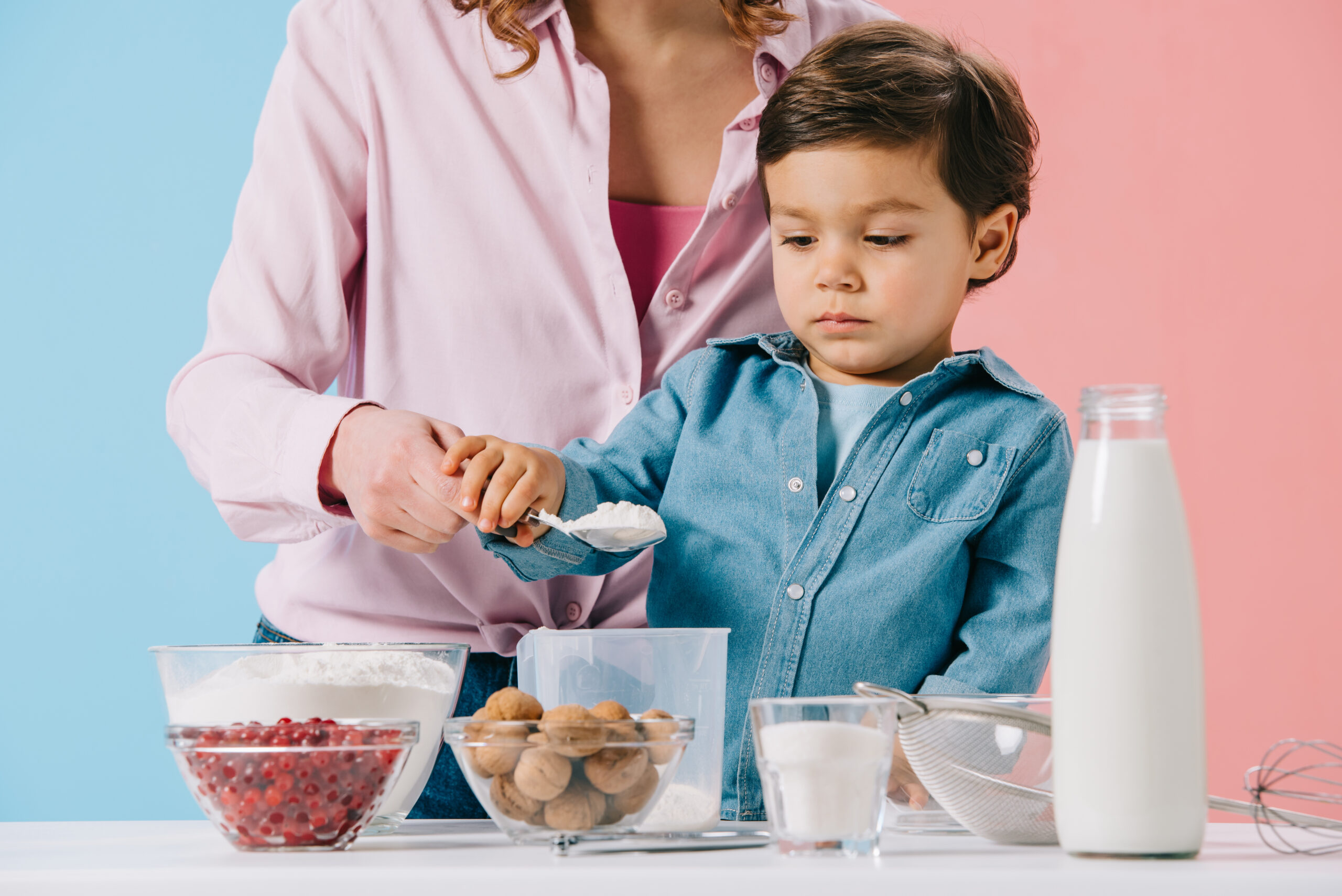Food allergies in children can be overwhelming, but with the right knowledge and preparation, parents can create a safe and enjoyable eating experience for their little ones. Whether your child is newly diagnosed or you’re looking for ways to improve allergy management, this guide will help you understand common allergens, testing options, and how to advocate for your child in school and social settings.
Most Common Childhood Food Allergies
While children can be allergic to any food, these are the top eight most common allergens:

- Milk – Found in dairy products like cheese, yogurt, and butter.
- Eggs – Often hidden in baked goods and processed foods.
- Peanuts – Can be life-threatening and may appear in unexpected foods.
- Tree Nuts – Includes almonds, cashews, walnuts, and hazelnuts.
- Soy – Found in soy milk, tofu, and many processed foods.
- Wheat – A major ingredient in bread, pasta, and baked goods.
- Fish – Includes salmon, tuna, and cod.
- Shellfish – Includes shrimp, crab, and lobster.
A child development specialist may also warn about additional sensitivities, such as reactions to food dyes, preservatives, or lesser-known allergens like sesame.
How to Get Children Tested for Allergies
If you suspect your child has a food allergy, testing is the best way to confirm and manage their condition. Here’s what you need to know:
- Keep a Food Diary
Track your child’s meals and any reactions they experience. This helps doctors pinpoint potential triggers. - Consult an Allergist
Pediatric allergists specialize in diagnosing and treating food allergies. They can recommend the best testing method for your child. - Types of Allergy Tests
- Skin Prick Test – A small amount of the suspected allergen is applied to the skin to check for a reaction.
- Blood Test – Measures the immune system’s response to specific allergens.
- Oral Food Challenge – A supervised test where the child consumes small amounts of the suspected allergen under medical observation.
Early testing supports holistic child development, allowing parents to create a safe and inclusive environment for their child.
How to Talk to Family and School Staff About Food Allergies
Communicating your child’s needs effectively is key to their safety.
1. Hold a Family Meeting
Gather relatives and caregivers to explain your child’s allergies. Use simple language to describe the severity and what foods must be avoided. A family meeting also ensures that grandparents and extended family take food allergies seriously.
2. Use Nonviolent Communication
Practicing nonviolent communication helps parents address concerns without causing conflict. Instead of saying, “You never take my child’s allergy seriously,” try, “I feel worried when my child eats food that hasn’t been checked for allergens. Can we work together to keep them safe?”
3. Educate Teachers and School Staff
- Provide a written allergy action plan to the school nurse and teachers.
- Request an allergy-friendly meal plan if needed.
- Ensure staff is trained in using an epinephrine auto-injector if required.
Encouraging active listening parenting techniques when speaking to teachers ensures that your concerns are fully understood and addressed.
Allergy-Free Brands That Kids Love
Finding safe and delicious alternatives is crucial for kids with food allergies. Here are some popular brands offering allergy-friendly options:
- Enjoy Life – Top-8 allergen-free snacks, cookies, and chocolates.
- MadeGood – Nut-free granola bars packed with veggies.
- Daiya – Dairy-free cheese and yogurt alternatives.
- Banza – Chickpea-based pasta for gluten-free meals.
- SunButter – Peanut-free sunflower seed butter.
- Simple Mills – Gluten-free and dairy-free baking mixes.
- Free2b Foods – Nut-free chocolates and treats.
These brands help parents implement positive discipline strategies for toddlers by making it easier to provide safe, delicious food without unnecessary battles.
Final Thoughts: Empowering Parents and Kids
Food allergies can be challenging, but with awareness and preparation, children can thrive in a safe and inclusive environment. Parents who embrace the conscious parent mindset focus on educating, advocating, and fostering resilience in their children.
Tip: Teach kids to self-advocate by helping them practice phrases like “Does this have peanuts in it?” or “I can’t eat dairy. Do you have another option?”
For more insights on parenting and food safety, follow us on Instagram and YouTube for expert advice and tips.
For the latest allergy-friendly resources and news, click here to view our recent press releases.
Together, we can make every mealtime safe, enjoyable, and stress-free!






